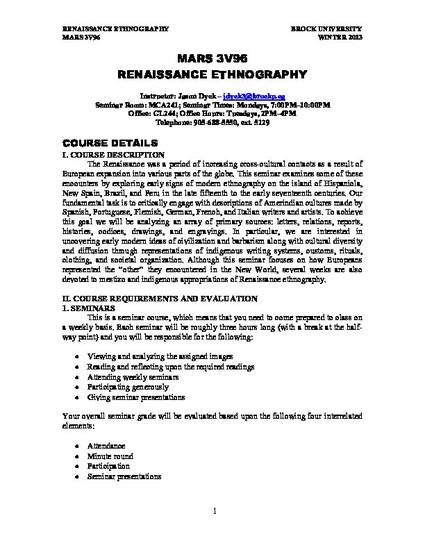
Course Syllabus
MARS3V96 (Renaissance Ethnography)
Renaissance Ethnography
(2013)
Description
The Renaissance was a period of increasing cross-cultural contacts as a result of European expansion into various parts of the globe. This seminar examines some of these encounters by exploring early signs of modern ethnography on the island of Hispaniola, New Spain, Brazil, and Peru in the late fifteenth to the early seventeenth centuries. Our fundamental task is to critically engage with descriptions of Amerindian cultures made by Spanish, Portuguese, Flemish, German, French, and Italian writers and artists. To achieve this goal we will be analyzing an array of primary sources: letters, relations, reports, histories, codices, drawings, and engravings. In particular, we are interested in uncovering early modern ideas of civilization and barbarism along with cultural diversity and diffusion through representations of indigenous writing systems, customs, rituals, clothing, and societal organization. Although this seminar focuses on how Europeans represented the “other” they encountered in the New World, several weeks are also devoted to mestizo and indigenous appropriations of Renaissance ethnography.
Keywords
- Renaissance,
- ethnography,
- colonialism
Disciplines
Publication Date
2013
Citation Information
Jason Dyck. "MARS3V96 (Renaissance Ethnography)" Renaissance Ethnography (2013) Available at: http://works.bepress.com/jason-dyck/40/
